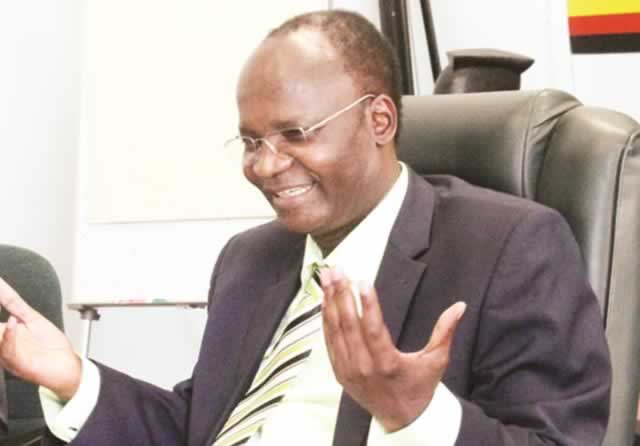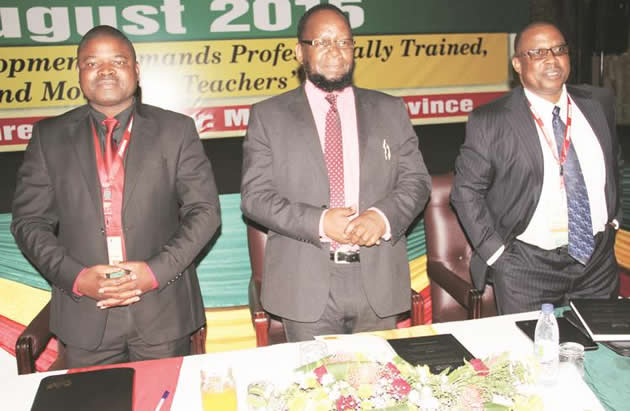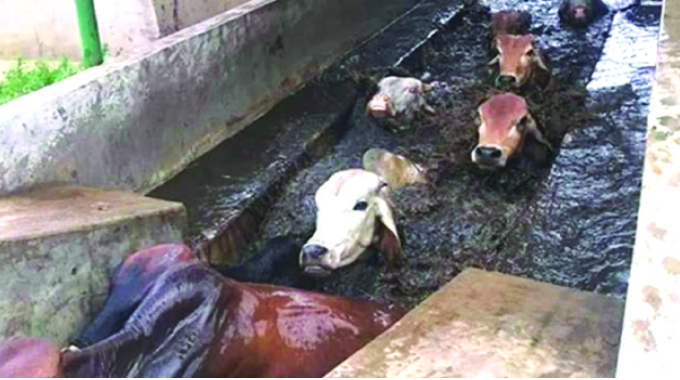‘Higher education critical to Zim-Asset’

Bulawayo Bureau
HIGHER and tertiary education is a neglected and forgotten sector of the country, a situation that works against Zimbabwe’s interest, Higher and Tertiary Education, Science and Technology Development Minister, Professor Jonathan Moyo, has said.
Speaking at the official opening of the Zimbabwe Open University Bulawayo regional centre last week, Prof Moyo said the sector was key to the development of manpower and critical skills the country needed for socio-economic transformation, but was currently neglected.
Prof Moyo, whose ministry has held meetings with vice chancellors and principals in polytechnics and teachers’ colleges and is presently visiting each of the tertiary institutions, said the sector was critical in fulfilling the goals of the Government blueprint, Zim-Asset.
“Over the period I’ve been on this assignment, I’ve come to understand the difficult conditions in which State universities are operating. I’ve been spending the time to learn, to get to understand what is happening, what is the state of higher and tertiary education, science and technology,” he said.
“From the interactions that we’ve had, which we’ll have to follow up with physical visits, I’ve come to appreciate that the higher and tertiary education sector is a neglected sector, it’s a forgotten sector in our country and that is not in the national interest.
“Moreso when we know that this is the very sector which is responsible generally for manpower development, for developing the critical skills that our economy needs for the socio-economic transformation that we all want.
“The difference between developed and not developed, failure and success, is human capital development and if we are going to be able to address that issue, consolidate the success that our country, under the leadership of President Mugabe, made in laying a formidable and irreversible foundation for basic education, we need to start paying attention to the requirement of higher education or institutions, tertiary education and science and technology. If we don’t do that then we risk losing the foundation that is the best on the continent.”
Prof Moyo pledged his ministry’s full support to ZOU and other State universities saying Government would soon reveal details of interactions with representatives of institutions under the ministry and map a way forward.
“What we’ve been told is just unbelievable,” he said. “The vice chancellors and their teams at State universities, the principals at polytechnics and teachers colleges should be commended for the excellent job they are doing under the most difficult conditions,” he said.
“The difficult conditions they face on a daily basis are not known, you don’t know about them. I’m committed to making sure that you’ll know about them because you can’t solve a problem you don’t know you have.
“We are encouraged by the quality of skills at the helm of these institutions, the commitment they have and the fact that we have a good system of primary education and therefore the quality of the students.”
Prof Moyo said the country had the necessary ingredients to have comparative advantage in education.
The minister urged caution in celebrating the country’s high literacy rate on the African continent.
He said there was need to do away with the presumption “that many of us have, a celebration that we share as Zimbabweans, that we’re a very educated population, that we’ve the highest literacy rate on the African continent at 92 percent or so at some point it was 94, which means that at least 92 percent of our adult population can read and write.
“We celebrate this, we’re proud, we think this is a distinguishing characteristic feature of our nation, but sometimes we mislead ourselves in that celebration because we don’t unpack it to understand what exactly it means. Put simply, 92 percent of our adult population being able to write their names means that at least they have attained education to Grade Seven,” said Prof Moyo
“The 92 percent literacy rate means 92 percent of grown-ups in our population, which is about 13 million, we believe, can write their names. This is something very good to boast about when we are in foreign lands, but when we’re here, we have to be careful about this. We have to understand what it actually means.”
Added Prof Moyo: “It doesn’t necessarily or even at all mean that we’re highly educated. It simply means that we have the basic foundation for possible education and how we realise that possibility is an entirely different story.
“To become educated, you need the foundation, and because of our President’s pioneering leadership in education and commitment of our Government at Independence, we’ve put an unmatched foundation anywhere on the continent for our citizens to get the basic tool.
“But we’ve not done what is necessary to then facilitate those of our compatriots who’ve attained the basic tools to become educated to a point where we can then say, we’re an educated society,” he said.
Meanwhile, Prof Moyo commended ZOU under the leadership of Vice Chancellor Prof Primrose Kurasha for making education accessible to various parts of the country.
“In terms of the reason we are here today, it is the discharge of the responsibility to create learning opportunities for all Zimbabweans to be able to access higher education,” he said.
“The innovation that we’re seeing from ZOU is to create that opportunity and to present it within conditions that set the highest standards of learning, quality, the various programmes and qualifications that ZOU offers are respected across our society and economy.”











Comments